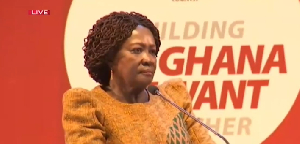Business News of Thursday, 21 May 2015
Source: GNA
‘Increase Civil Society Participation in Policy Making’
Mr. Ignacio Burrull, Head of Cooperation of the European Union (EU) Commission in Ghana has advocated increased Civil Society participation in policy making as well as budget processes.
This according to him, would promote transparency and accountability.
He said the Commission recognised the constructive role of civil society in the development process and believed that an empowered civil society was a crucial component of any democratic system and was an asset in itself.
Mr. Burrull, who was speaking at a two-day seminar organised by the Youth Bridge Foundation to analyse the country’s budget processes said increased engagement of Civil Society Organizations (CSOs) would serve as an important complement to its existing work with national authorities like the Parliament and Supreme Audit Institutions.
He noted that while this would lead to improved access to public information and data, CSOs could also play a key role in aggregating and presenting the needs and demands of constituents on their behalf.
“In a similar vein CSOs may also be consulted by statutory oversight bodies, especially the Parliamentary standing committees or sector working groups, where civil society representatives may have the opportunity to participate in detailed policy making, priority setting and influence decisions,” he stated.
He said the EU in line with that belief and with other donors had provided support to two multi-donor funding facilities for civil society: the STAR Ghana and the BUSAC, having followed with keen interest the encouraging results produced by STAR-Ghana's engagement with Parliament and expressed the hope that it could be sustained and enhanced in the second phase of the programme.
Also the EU-ACP Partnership under the Cotonou Agreement was seeking to promote civil society involvement in development cooperation.
“The facilitation of the enabling conditions for civil society participation in development processes requires a collective effort of all actors including government, civil society organizations, citizens at large, donors and many others,” he stated.
Mr. Burrull also noted that having declared 2015 the European Year for Development, the Commission was focusing on the EU’s external relations and its role in the world; an opportunity to showcase Europe’s commitment to poverty eradication and sustainable development and inspire more Europeans to get engaged and involved in development.
The EU had contributed to providing funds for the achievement of the Millennium Development Goals (MDGs), which were set in 2000 to be achieved by 2015, and had provided opportunity for more pupils to go to primary school, more that 70 million people linked to improved drinking water, and over 7.5 million births attended by skilled health workers.
He stressed however that there was more to be done to reduce poverty and that the needs and priorities of the youth needed to be considered, when the post-2015 agenda is agreed upon at the United Nations and the Sustainable Development Goals adopted to replace the MDGs, as young people were central to the future development agenda and its implementation.
“Young people are not just recipients of development, but also actors in development efforts,” he concluded.










